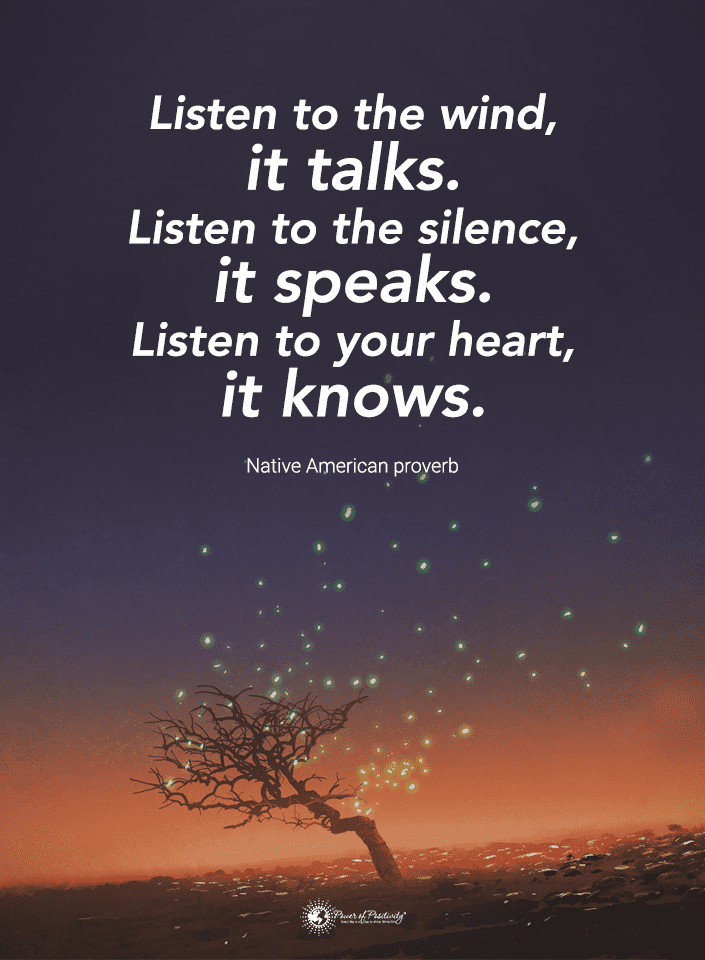Being sensitive to others’ feelings is considered a virtue. It’s a sign of maturity when you can put yourself in someone’s place. Although can it be a case of being overly empathetic?
Almost everyone is familiar with sympathy cards sent to families whose loved one has passed. Signing “with deepest sympathy” acknowledges their loss and your sadness for them. While you can express your polite condolences, it’s not the same as being empathetic.
These two concepts are related, but they’re not synonymous. As a sympathetic person, you can feel sorry for someone and go your way. Empaths not only express sympathy, but they “feel” for those who are hurting.
Sympathy says you’re sorry someone fell, while empathy reaches down to pick them up. It mirrors the embarrassment of taking a tumble and the pain of a bruised ego. There’s a thin line between healthy empathetic feelings and having too much of a good thing.
Emotional Saturation
If you’re a strong empath, any group situation can be challenging. You can immediately feel the charge of the atmosphere, be it positive or negative. Empathetic people naturally absorb both until they are saturated.
The good news is that if you surround yourself with positive folks, you connect with positivity. If you allow yourself to be bogged down by pessimists, you’ll take on their negativity like an emotional chameleon.
Are you the only person in this world who has this emotional condition? An article from the National Library of Medicine shares that at least twenty percent of Americans are susceptible. Ironically, it’s a condition to which you can easily relate.
Twelve Reasons Why Empaths Don’t Feel Like They Belong
Are you an empathetic person who feels trapped in your world of absorbed emotion? Understandably, you may feel different from everyone else. Here are twelve reasons why empaths may feel like they don’t belong here.
1. Empaths Are Usually the First Person to Sense Others’ Moods
You can often see a friend or stranger and “read” their mood without them saying anything. Perhaps you’re one of the unusual empaths who can see other people’s auras. The person can be smiling, joking, and laughing. However, you instinctively know the pain hidden behind the façade. You also know just how to approach people according to their feelings.
2. You’re Bothered by the Smallest Things
Some people may accuse empaths of being petty because little things get to them. You may often have problems wearing your emotions on your sleeve if you’re highly empathetic. Insignificant actions and words may leave you feeling puzzled or resentful.
For example, a coworker invites you to a cocktail party, and you ease into a group conversation. Another coworker says they are surprised to see you. While this person was probably expressing their happiness, you wondered if they had a double meaning. Worse, you cannot shake the question from your head.
On a positive level, your attention to detail can be a blessing. You can often see the whole picture or a piece that’s missing. Your sensitivity is helpful if it doesn’t turn into perfectionism.
3. You Confuse Other People’s Emotions with Yours
Empathy allows you to walk in another’s shoes. You not only identify their feelings, but you experience them as well. If you’re already highly sensitive, you have enough profound emotions on your own.
Sometimes, it may be challenging to tell if the emotions are another’s or yours. You may be so emotionally vested in the other person’s situation that you feel overwhelmed. The best way to avoid such confusion is to spend more alone time decompressing.
4. Empaths Can’t Watch Any Horror or Violence
Many people get a strange thrill from watching horror and graphically violent movies. However, empaths like you aren’t among this crowd. You realize that it’s all make-believe, but evening fake violence and suffering become too real for you.
It only worsens when the violence, pain, and suffering the media broadcasts are real stories. All the reports and rumors about victims of crime, war, and other horrors are too much for you to absorb. Consequently, you may rarely watch the news or read the papers because you can’t bear the negativity.
5. You Can’t Tell People No
Empaths despise drama and try to keep everyone happy. According to an article published by UC at Berkeley, people-pleasing doesn’t serve you well. Eventually, you’ll be less genuine to your own needs and wants.
Do you always say “yes” to people’s demands just because you want them to like you? Even though it’s a strain on your time and resources, you would somewhat agree that it causes ill feelings. When you learn to say “no,” you empower yourself to choose what you do and what you want.
6. You Battle Depression and Anxiety
Try to picture the brain as a bustling highway in a major city. Like the sea of countless vehicles coming and going, so are impulses in your mind. Sometimes, your thoughts and emotions become like bottlenecked traffic and affect your brain.
When highly sensitive, you’re more apt to face depression and anxiety. You may still be clinging to the past while worrying about the future. Healing comes when you decide to live in the present and release negative emotions.

7. You’re an Old Soul
It’s common for empaths to feel out of sorts with their body and surroundings. Do you have experience déjà vu and other unexplainable sensations? Undoubtedly, friends and family have dubbed you an old soul born out of your time.
Past eras may hold a fascination for you. You sense familiar sights, sounds, and scents when you read about them. Proponents of reincarnation explain these phenomena as remnants of your past lives.
8. Empaths Don’t Like Too Much Change at Once
The only thing that’s static in life is that nothing stays the same. Change can be difficult for everyone, especially highly sensitive people. You get used to the status quo in your life, and then the rug gets pulled out from under you.
A study published by Stanford University discusses the psychology of change. According to the survey, self-affirmation and adaptation are tools for coping with change efficiently. It may take your sensitive personality longer to get used to a new normal, but you can do it.
9. You Crave Solitude
Empathetic souls like you need time to sort their feelings. Therefore, solitude is a place of healing and comfort. While you may be intuitive with people, you’re probably an introvert.
During your times of seclusion, meditation may be a valuable tool for decompressing. This ancient practice may help you live more mindfully and detach from unhealthy attitudes. Some folks enjoy the benefits of lowering their stress by writing their thoughts and feelings in a journal.
10. You Often Struggle with Emotional Fatigue
Dealing with emotions requires a lot of energy, especially if you are highly empathetic. Not only do you face your feelings, but you also deal with the ones you’ve absorbed. It’s little wonder that you often feel drained physically, emotionally, and mentally.
People with heightened senses often experience stress to the point of breakdown. You must practice self-care and realize that you can’t fix the world. Sorting your feelings can promote emotional healing and more positive energy.
11. You’re Hunches are Often Right on the Mark
Empathetic personalities often have a strong sense of intuition. You notice patterns and are usually more in tune with your inner voice. You trust your gut instincts, and they often prove to be correct.
For example, say you were planning a vacation but felt subtle reservations. After heeding your intuition and rescheduling the trip, a hurricane hit where you would have been. Is it just coincidence, or is it just a thread in the tapestry that’s you?
12. You Have Difficulties Sometimes in Intimate Relationships
The ability to empathize with others is one of the mainstays of a healthy, lasting relationship. You have a deeper understanding of your partner’s feelings, and you can offer affirmation. Empathetic people are usually excellent listeners and are willing to discuss a compromise.
Conversely, empaths can often be loners and don’t want their solitude violated. You may be okay with an intimate relationship as long as you maintain your own space. Making a long-time commitment or moving in together may be problematic.
Final Thoughts on Empaths and Feelings of Not Belonging
Being an empathetic person can often be a two-edged sword. Your compassionate nature can be a blessing, or it can leave you with feelings of isolation. When empaths learn to destress and practice self-care, they can bring that sensitivity back into balance.




















